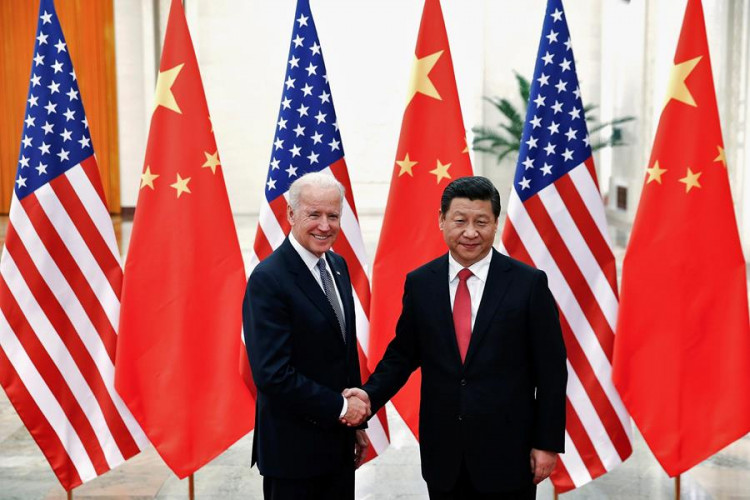As President Joe Biden arrives in Lima, Peru, for the Asia-Pacific Economic Cooperation (APEC) summit, his ability to project influence is markedly constrained, overshadowed by President Xi Jinping's assertive display of China's power in Latin America. The summit comes at a critical juncture, with China cementing its economic reach and Biden facing the challenges of a waning presidency, compounded by President-elect Donald Trump's return to the political spotlight.
The summit's backdrop is dominated by China's opening of a $1.3 billion megaport in Chancay, Peru, a project developed with Peruvian partner Volcan and China's state-run Cosco shipping and logistics giant. The investment, which is expected to exceed $3.5 billion over the next decade, signals Beijing's strategic ambitions along the Pacific coast, from Canada to Chile. "The shipping business is being transformed," Peruvian Foreign Minister Elmer Schialer told The Associated Press, emphasizing the port's potential to reshape regional trade routes.
Margaret Myers, director of the China and Latin America program at the Inter-American Dialogue, described the U.S.'s diminished role at the summit, noting, "All eyes are going to be on the port, what Xi says about it and how he articulates relations across the Pacific." The port is emblematic of China's growing influence in Latin America, where its trade has surged from negligible levels at the turn of the century to nearly $500 billion by 2022, according to the Economic Commission for Latin America and the Caribbean.
President Xi's extensive engagement in the region, including visits to 11 Latin American countries since taking office, underscores China's diplomatic gains at America's expense. In contrast, Biden's trip to Peru appears burdened by geopolitical uncertainty, further complicated by Trump's imminent return and his "America First" stance, which many fear will isolate the U.S. on the global stage. "With Trump's re-election, China will be seen as the alternative," Myers said.
The evolving dynamics present a diplomatic dilemma for the U.S., which has been urging Latin American countries to resist Chinese investments in sensitive areas like telecommunications, particularly regarding Huawei. Additionally, concerns have been raised over potential military implications of Chinese infrastructure projects like the Chancay port. "China is working to exploit insecurity in our hemisphere," U.S. Defense Secretary Lloyd Austin said at the Southern Command headquarters in Florida.
Biden's meeting with Xi on the sidelines of the APEC summit is set to be their third and likely final engagement during Biden's presidency, according to national security adviser Jake Sullivan. Biden aims to emphasize the importance of maintaining stability and clear lines of communication between the two nations. "This is an important meeting. It will not be just a valedictory," Sullivan noted, emphasizing ongoing cooperation on issues like fentanyl flow, artificial intelligence, and climate change.
Trump's influence looms large over the summit, with his announced intent to impose stricter tariffs on China and revive unilateralist trade policies that characterized his first term. The U.S. had sought to counterbalance China's dominance through initiatives like the Indo-Pacific Economic Framework, but Trump's potential return threatens to unravel these efforts. Danny Russel, a former State Department official, highlighted the stakes: "The likelihood of the Trump administration imposing tariffs is real... and that should be a clarion call to the big offenders like China that they need to adjust their policies."
Despite the headwinds facing the U.S., Peruvian officials stress that Washington remains a vital player in the region. "The U.S. is too important for the world. We have to sit down and have a nice dialogue and see how we can face these challenges together," said Schialer. Nonetheless, analysts believe the hard-nosed competition between the U.S. and China will overshadow the summit, with Beijing's expanding footprint a reminder of shifting global power dynamics.
Benjamin Gedan, director of the Wilson Center's Latin America Program, summed up the stakes: "The Chinese love the idea of outmaneuvering the U.S. in its near-abroad. Xi will luxuriate in this dynamic of being able to arrive with a big delegation... and suck all the air out of the room when his American counterpart is very weak politically."






